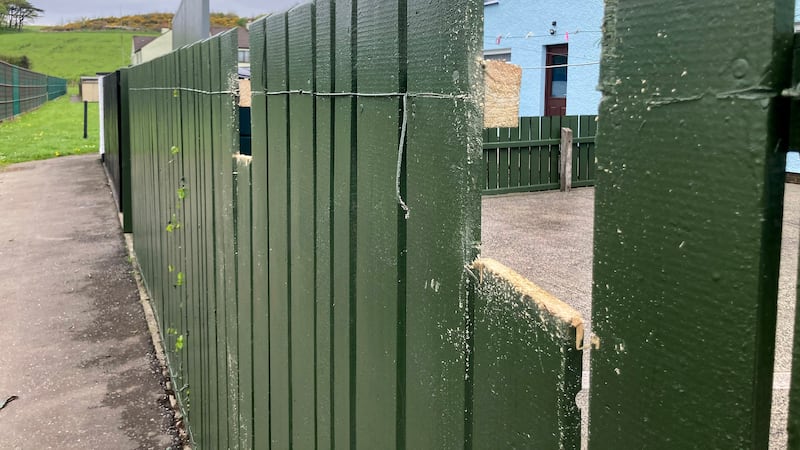I am old enough to remember the early days of the Troubles and the peaceful protests of the Civil Rights Association in an effort to end the rancid problem of discrimination on purely sectarian grounds against the Catholic population of this artificially created six-county statelet. I can also vividly remember the television coverage, of these peaceful protesters being beaten off the streets by baton-wielding members of the RUC and B Specials.
However, more than 50 years later, that putrid smell of discrimination is once again floating in the air. Since the passing of the Good Friday Agreement (GFA) in 1998 we have had an assembly and an executive headed by a First and Deputy First Minister in accordance with the terms of the agreement. Both have exactly the same powers and neither one can do anything without the agreement of the other. So, in fact, they are joint first ministers.
For the past 24 years either the UUP or the DUP have been the largest single party in the assembly and in compliance with the articles of the GFA have taken up the position of FM. During the same period either the SDLP or Sinn Féin have taken up the post of DFM.
Now, for the first time since 1998 it looks almost certain that a nationalist party – Sinn Féin – will be the largest party in the assembly and here is where that open wound of sectarianism has once again raised its ugly head. It seems that the unionist parties and their leaders are not prepared for a Catholic/nationalist to take up this post and are not prepared to serve in a government with a Catholic/nationalist first minister.
If it was right to have a Protestant/unionist first minister for the past 24 years, it also has to be right to have a Catholic/nationalist first minister, if that’s what the outcome of the election determines. Failure to accept this democratic principle must not be permitted to drag us back to the one-party state of more than 50 years ago. Politics on sectarian grounds has gone and the British and Irish governments, along with nationalists, must ensure that it never returns.
Jeffery Donaldson and Doug Beattie should be holding their heads in abject shame because of their refusal to say that they would appoint a DFM if Sinn Féin come out of these elections as the largest party.
The world is waiting to see whether or not unionism has moved one inch from its previous politics.
SEAN SEELEY
Craigavon, Co Armagh
Local politicians lack vision
It is perhaps a measure of the ambition of some of our local politicians that their greatest aspiration seems to be to hand out money from the European Union or UK government rather than have the foresight to create the conditions to encourage the creation of real jobs or keep the cost of living down. While there may be some fringe benefits from the Northern Ireland Protocol it is now apparent that in general it will increase the cost of living and the cost of supplies to industry and also decrease the range of goods available in Northern Ireland, over and above the effects of the impact of the Ukrainian crises. The supporters of the protocol have continually changed their excuses for its damaging effects. The excuses have included teething problems, the fault of GB suppliers not having prepared themselves, it’s the DUP and Tory government in Westminister’s fault and the latest excuse is, ‘Don’t ask me about the protocol as the public aren’t interested’. Thrown into the pot was the triggering of Article 16 by the EU to stop the supply of Covid vaccines to Northern Ireland, which was excused as the work of a minor official, and also the initial denial that there was a border in the Irish Sea. Now we have the revelation that, because of the protocol, the people of Northern Ireland cannot benefit from a cut in the cost of fuel announced by the Chancellor of the Exchequer. While some political parties bury their heads in the sand the storm clouds continue to gather around the protocol, before too long the situation may reach the stage where no amount of handouts from Westminister or Brussels will compensate for the damage done to community relations and living standards. Of course the same political parties will still blame everyone else and demand even more money to hand out to the voters.
JAMES MARTIN
Dromore, Co Down
Voicing ill-founded objections
I am sure I am not alone in wondering why Simon Coveney is making such a huge unnecessary fuss about the introduction of certain formalities for non-Irish persons who plan to cross the border into Northen Ireland. According to his department’s website:
“Under the Common Travel Area (CTA), Irish and British citizens move freely and reside in either jurisdiction and enjoy associated rights and entitlements including access to employment, healthcare, education, social benefits and the right to vote in certain elections.”
So, clearly there can be other arrangements for persons who are not Irish or British citizens without that infringing either the letter or the spirit of the agreement.
Rather than voicing ill-founded objections to the principle Mr Coveney would do better to calmly suggest ways in which the system can be made to work as smoothly as possible.
It has already been said that the UK authorities will not be carrying out any routine checks at the actual border, and so nobody will be stopped and asked to produce papers – but there are reasonable questions about the ease of obtaining a waiver and the period for which it will be valid.
D R COOPER
Berkshire, England
Protocol is here to stay
Once again we have Noel Keys trying to explain why violence might become part of the protocol protest, citing that the people of Ukraine have the right to resist the Russian invasion. But does he, or can he not see, that the reason for IRA violence for the past 100 years is exactly the same as the Ukrainians – a fight to rid their country of a foreign invader. It also seems today that loyalists who protested against the IRA using van drivers as proxy bombers have now adopted this use for their own protocol protests. The protocol is here to stay, in whatever form we don’t know, and it will be here until we have a united Ireland – which no matter what they say isn’t as far away as you might think.
JOSEPH KENNEDY
Dunmurry, Co Antrim







